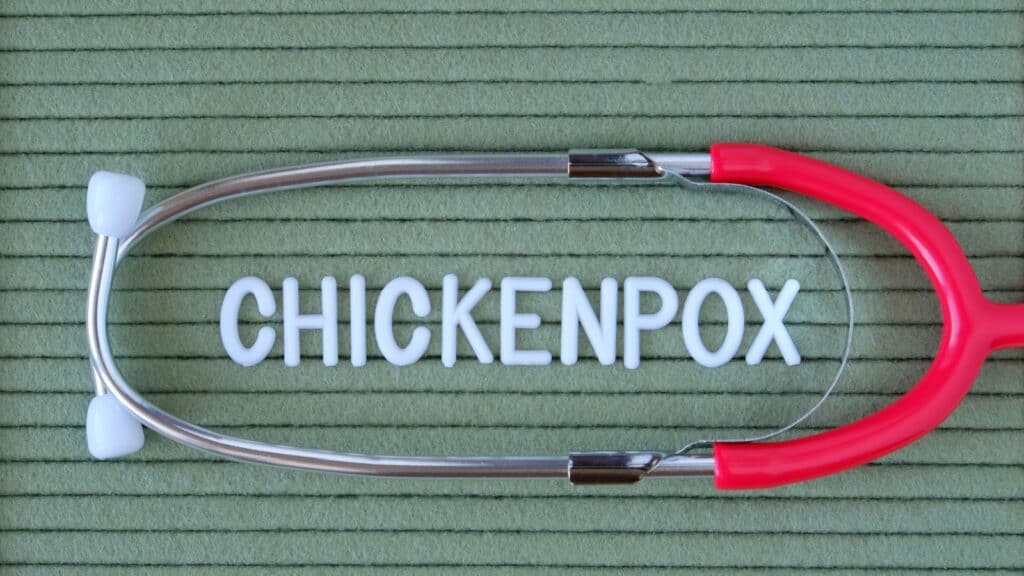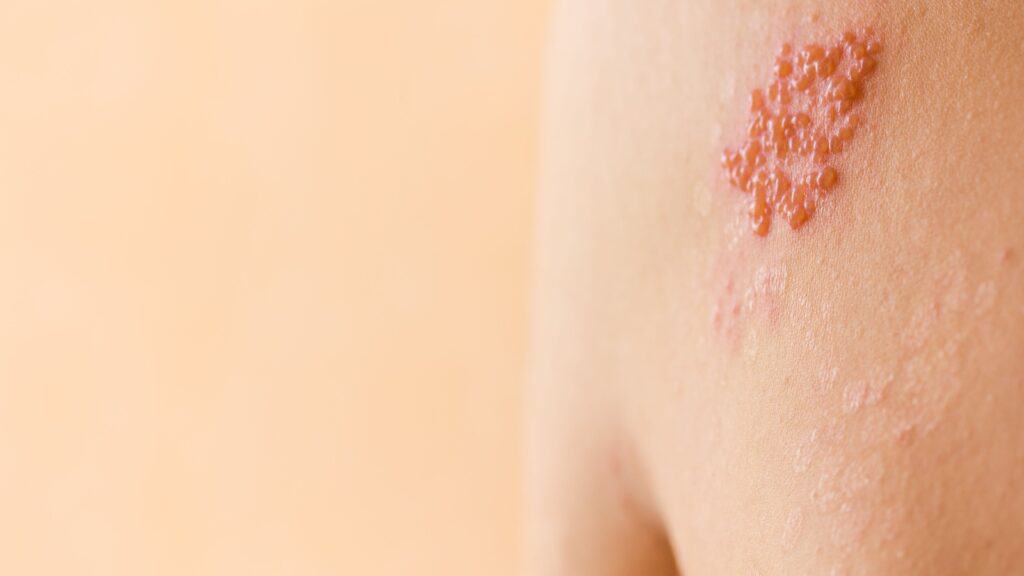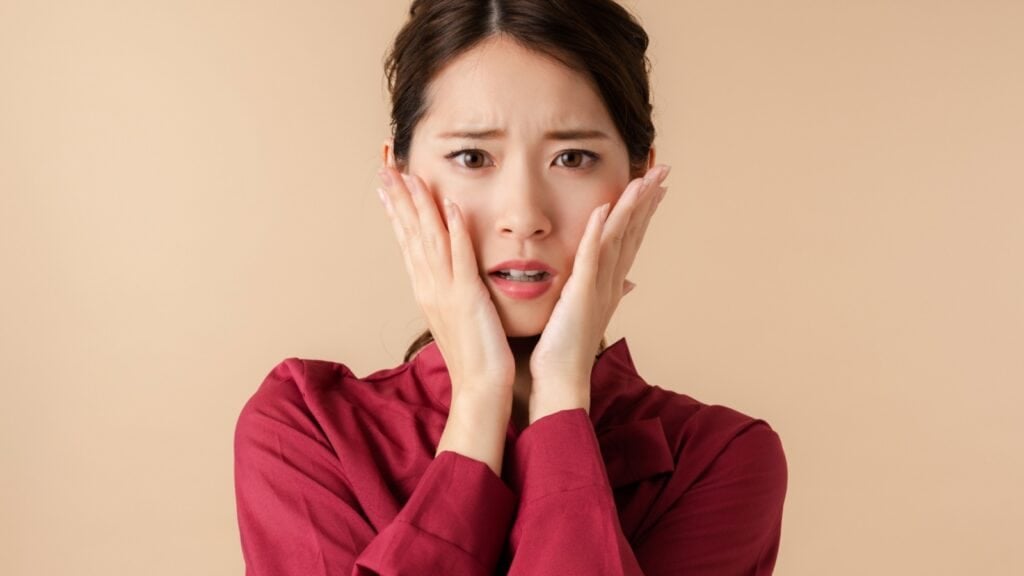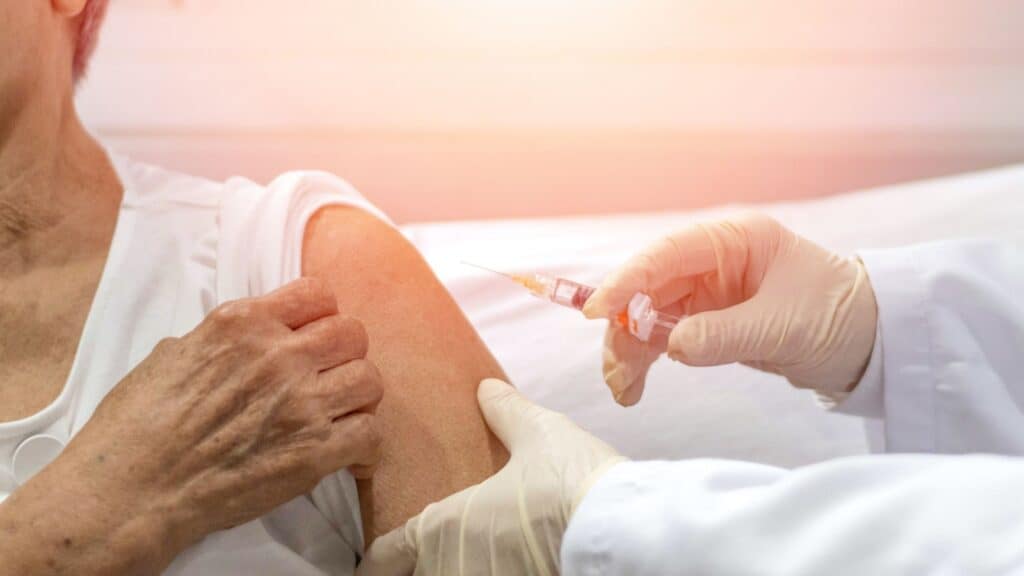Are You at Risk for Shingles? Expert Insights and Prevention Tips You Can’t Miss!
Shingles, also known as herpes zoster, is a viral infection that results in a painful rash. It is caused by the varicella-zoster virus, the same virus that causes chickenpox. After a person recovers from chickenpox, the virus can remain dormant in the body and reactivate years later as shingles.
What Are Shingles?

Shingles manifest as a painful, blistering rash that typically appears on one side of the body, often in a band-like pattern. The rash is usually preceded by sensations of burning, itching, or tingling in the area where the rash will develop.
How Do You Get Shingles?

Shingles occur when the dormant chickenpox virus reactivates. Factors that may trigger reactivation include stress, a weakened immune system, aging, or certain medical treatments.
Difference Between Herpes Simplex and Herpes Zoster

Herpes simplex virus (HSV) and herpes zoster are different viruses. HSV causes oral and genital herpes, characterized by cold sores or genital blisters. Herpes zoster causes shingles and is specifically linked to a reactivation of the varicella-zoster virus.
Manifestation of Shingles

Shingles typically start with pain, followed by the development of red patches on the skin, which progress to fluid-filled blisters that eventually crust over. The rash often wraps around the left or right side of the torso, though it can appear anywhere on the body.
Is Shingles Painful?

Yes, shingles can be quite painful. The pain can vary from mild to severe and is often described as burning, stabbing, or shock-like.
Is There Long-Term Pain?

If you’ve experienced shingles before, you might be aware of Postherpetic Neuralgia (PHN), the pain that can continue after the rash clears. Understanding treatment options for PHN, which include certain medications, creams, and even nerve blocks, can be useful if you experience this complication.
Average Age for Shingles to Appear

Shingles most commonly appears in people over 50 years old, but it can occur at any age, especially in individuals with weakened immune systems.
All About The Shingles Vaccine

The shingles vaccine is recommended for adults aged 50 and older to reduce the risk of developing shingles and its complications. The vaccine, known as Shingrix, is over 90% effective in preventing shingles.
The Shingles Vaccine Is A 2-Dose Process

The shingles vaccine, known as Shingrix, is indeed administered as a two-dose series. Shingrix is highly recommended because it significantly reduces the risk of developing shingles and its complications, including the long-term nerve pain known as postherpetic neuralgia (PHN) that can follow an episode of shingles.
Here’s how the Shingrix vaccine is typically administered and information about its effectiveness:
- Dose Schedule: The first dose is given at a scheduled appointment, followed by a second dose 2 to 6 months later. It’s important to complete both doses to achieve the highest level of protection.
- Effectiveness: Shingrix is more than 90% effective at preventing shingles and PHN. Its effectiveness remains above 85% for at least the first four years after the final dose.
Should Everyone Get The Shingles Vaccine?

- Who Should Get It: The vaccine is recommended for adults aged 50 years and older, regardless of whether they recall having had chickenpox or not, as nearly all adults over 50 have been exposed to the varicella-zoster virus. It is also recommended for adults aged 18 years and older who are at increased risk of shingles due to immunodeficiency or immunosuppression caused by disease or therapy.
- Side Effects: The vaccine can cause side effects, typically mild, such as soreness at the injection site, headache, fatigue, muscle pain, and occasionally fever. These symptoms usually resolve within 2 to 3 days of receiving the vaccine.
- Who Should Not Get It: People with severe allergic reactions to any component of Shingrix, those who currently have shingles, and women who are pregnant or breastfeeding should not receive the vaccine.
It’s a good idea to discuss your specific health situation with your healthcare provider to determine the best timing and approach for receiving the Shingrix vaccine, especially if you have experienced multiple shingles outbreaks or have a condition that affects your immune system.
What To Do If You Have a Shingles Outbreak

If you suspect a shingles outbreak, it’s important to consult a healthcare provider promptly. Early treatment can help reduce the severity and duration of symptoms. Keeping the rash clean and covered can help reduce the spread of the virus.
Duration of a Shingles Outbreak

A shingles outbreak typically lasts 2 to 4 weeks. In some cases, pain may continue after the rash has healed, a condition known as postherpetic neuralgia.
How Often Can You Get Shingles?

It is possible to get shingles more than once, although it’s uncommon to have multiple occurrences.
Is Shingles Contagious?

Shingles itself is not contagious, but the virus can be spread to someone who hasn’t had chickenpox, leading them to develop chickenpox. The virus is spread through direct contact with the fluid from the blisters, not through sneezing, coughing, or casual contact.
What Drugs Can Help Shingles?

Antiviral medications such as acyclovir, valacyclovir, and famciclovir can help treat shingles. These drugs are most effective when started within 72 hours of the appearance of the rash. Pain medications may also be prescribed to manage the symptoms.
Can You Prevent Getting Shingles?

There are steps you can take to minimize the possibility of getting shingles:
- Lifestyle Adjustments: Alongside vaccination, managing your stress levels, maintaining a healthy diet, getting regular exercise, and adequate sleep can all help support your immune system, potentially reducing the risk of future outbreaks.
- Monitoring Health: Keep an eye on symptoms of possible shingles, especially if you’ve had multiple episodes. Early treatment can help reduce the severity and duration of symptoms. Familiarize yourself with the signs, such as tingling, burning, or red rashes, and consult your healthcare provider promptly if they appear.
- Discuss with Your Doctor: Regular check-ups with your healthcare provider are crucial, especially if you have a compromised immune system or other health conditions. They can provide personalized advice based on your medical history and current health.
The Takeaway

Understanding shingles and the available treatments can help manage this painful condition effectively. Vaccination is a powerful tool in preventing shingles and its associated pain. If you think you have shingles, seek medical advice promptly to get the appropriate care.
Science Tells Us What To Expect As We Age: Strategies For Thriving In Later Life

that pertain to us all. Aging gradually alters people over decades, a long period shaped by individuals’ economic and social circumstances, their behaviors, their neighborhoods, and other factors. Also, while people experience common physiological issues in later life, they don’t follow a well-charted, developmentally predetermined path. Let’s take a look at what science has told us to expect. READ: Science Tells Us What To Expect As We Age: Strategies For Thriving In Later Life
Join Us

Join us on this empowering journey as we explore, celebrate, and elevate “her story.” The Queen Zone is not just a platform; it’s a community where women from all walks of life can come together, share their experiences, and inspire one another. Welcome to a space where the female experience takes center stage. Sign up for our newsletter so you don’t miss a thing, Queen!







